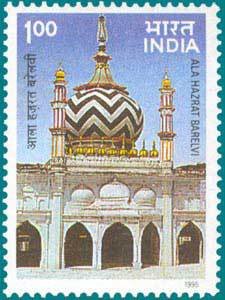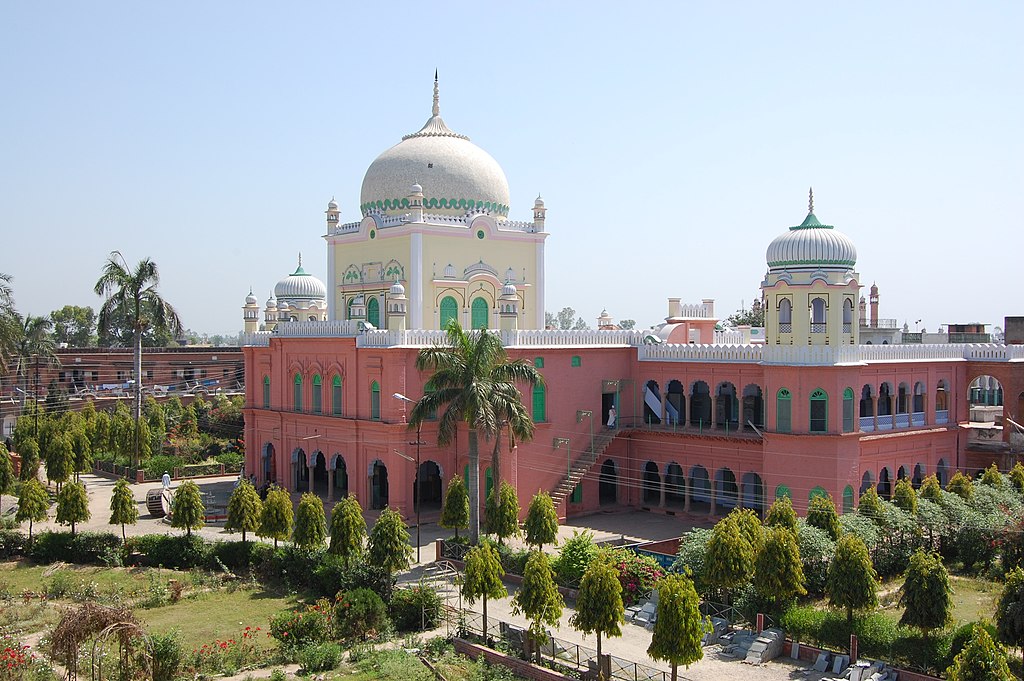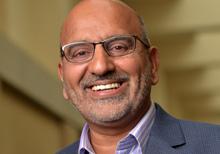 Reading SherAli Tareen’s magnificent Defending Muḥammad in Modernity (Winner of the 2020 American Institute of Pakistan Studies Book Prize) one is left contemplating how the ideas of visionary figures can set the complex agenda of future trends and institutions. Take the well-known scholar and political activist Shāh Muḥammad Ismāʿīl (d. 1831), a scion of the influential Walīyullāh family, and a key figure in Tareen’s work. His rigorist theological vision was adopted by some of the founders of the Deoband school, and they outlawed the widely practiced ritual and ceremony of commemorating the Prophet. Paradoxically, the spiritual mentor of the founders of Deoband, Hājī Imdadullāh (d.1899), much to the chagrin of some of his disciples, approved of this ritual, known as the mīlād, as Tareen explains, albeit with some stipulations. Ismāʿīl and Imdādullāh subtly and deliberately re-shaped the discursive practices of Muslims in South Asia, especially those that directly impinged on the relations between institutions, namely, what became known as the Deobandī school and their rivals the Barelvī school of thought. These schools argued over the ritual of mīlād and other doctrinal issues that Tareen discusses in detail. “Once a vision becomes an institution,” the influential German writer Siegfried Kracauer writes, “clouds of dust gather about it, blurring its contours and contents. The history of ideas is a history of misunderstandings” (7).
Reading SherAli Tareen’s magnificent Defending Muḥammad in Modernity (Winner of the 2020 American Institute of Pakistan Studies Book Prize) one is left contemplating how the ideas of visionary figures can set the complex agenda of future trends and institutions. Take the well-known scholar and political activist Shāh Muḥammad Ismāʿīl (d. 1831), a scion of the influential Walīyullāh family, and a key figure in Tareen’s work. His rigorist theological vision was adopted by some of the founders of the Deoband school, and they outlawed the widely practiced ritual and ceremony of commemorating the Prophet. Paradoxically, the spiritual mentor of the founders of Deoband, Hājī Imdadullāh (d.1899), much to the chagrin of some of his disciples, approved of this ritual, known as the mīlād, as Tareen explains, albeit with some stipulations. Ismāʿīl and Imdādullāh subtly and deliberately re-shaped the discursive practices of Muslims in South Asia, especially those that directly impinged on the relations between institutions, namely, what became known as the Deobandī school and their rivals the Barelvī school of thought. These schools argued over the ritual of mīlād and other doctrinal issues that Tareen discusses in detail. “Once a vision becomes an institution,” the influential German writer Siegfried Kracauer writes, “clouds of dust gather about it, blurring its contours and contents. The history of ideas is a history of misunderstandings” (7).
The jury is still out as to how one should name and frame the nature of these theological shifts which left long shadows on Islam as practiced on the subcontinent. But few doubts arise that their ideas were impacted by the changing political and cultural landscape of colonial India, a phenomenon that multiple participants in this symposium have noted. This harvest of reflections, with each contributor’s unique appreciation, is possibly the best gift to Tareen, who explores, describes, and analyzes the micro-histories of discrete theological debates in colonial India so that his readers can get a sense of what was at stake in these debates in the past and what ramifications they continue to have in the present. Most theological disputes have an afterlife, and some of these intricate and subtle debates about the authority of Islam’s messenger and prophet still percolate in the hearts and minds of the faithful to this very day.
Political Theology
As Tareen himself explains, political theology forms the golden thread in his book. In his contribution, Waris Mazhari acknowledges that religion and politics in Muslim history were intimately connected but he rejects what he labels as the “Western” category of “political theology” as less useful. In my view, the deep roots of “political theology” in Islamic thought can be found in the work of medieval Muslim scholars, which is often unacknowledged in critical scholarship. For instance, Muḥammad Aʿlā al-Tahānawī (died approximately 1707), the outstanding encyclopedist in Mughal India, writes that governance or politics (siyāsa) is “the cultivation of the good in humanity by guiding them to the path of salvation in this life and the next” (1:993–94). The nexus between humans, the world, and attaining God’s salvation is evident in this definition which today enjoys the moniker of political theology. In Tahānawī’s all-inclusive and comprehensive notion of the political, prophets exercise governance over the souls and the bodies of all people. As to the learned, who are fondly remembered in the tradition as “the true heirs of the prophets,” per the premodern prescription their jurisdiction is limited to the nurturing of the souls of the elites. As to the multitude, the discipline and governance of all people in this schema takes place via a regime of regulation by the show of power and of force for the maintenance of order. Even more interesting is that medieval Muslim political philosophy conceptualized the discipline of the self as the “governance of the souls” (siyāsa nafsīya) and the regulation of the realms of subsistence or economics, communal existence, and welfare as the “governance of the corporeal body” (siyāsa badanīya). Disciplining the subjectivities of the people was the task of the scholars, while regulating the public sphere was the task of the political rulers. All of this was part of this Islamic tradition centuries before Michel Foucault made us aware of the technologies of the self.
Most theological disputes have an afterlife, and some of these intricate and subtle debates about the authority of Islam’s messenger and prophet still percolate in the hearts and minds of the faithful to this very day.
Tahānawī explains that two common forms of theological and philosophical politics prevailed among Muslims. One was a politics of justice, also named “a regime of Norms/Sharīʿa” (al-siyāsa al-sharʿīya), which was drawn from the teachings of the prophets, as also articulated by the work of the philosopher Abū Naṣr al-Fārābī (d. 950). The other was a regime regulated by political philosophy and wisdom (al-siyāsa al-madanīya or al-ḥikma al-siyāsīya) where the rule of the monarch, Sulṭān, or other similar kind of ruler prevailed. Politics as a regime of governance is central to order, justice, and the protection of the realm against all enemies. Early Muslim political theorists viewed the regime of law and political philosophy as part of a mutually reinforcing continuum.
A feature of the composite political theology described above has as its desideratum the need to sustain an empire in harmony with early and premodern Islamic predecessors. Key features of these predecessors were hierarchy and a variety of distinctions, for example, between those who are free vs slave, male vs female, and between different forms of political subject positions and professions. In modern times, the heirs to this vocabulary of Muslim political theology often adopt it uncritically without due attention to the conditions of a different time and altered aspirations. In other words, not frequently practiced is a critical engagement with histories and concepts for their more effective use in the present.
Contextual Theology
It appears that someone like Shāh Muḥammad Ismāʿīl, whose thought Tareen’s documents in detail, partially sought a more egalitarian promise in the God of the Qurʾān. While undoubtedly portrayed as a monarch (malik), the God of the Qurʾān is nonetheless also one who does not act in an aristocratic fashion in the same way as earthly monarchs. Shāh Ismāʿīl’s God hears the prayers of the lowly leather-worker as well as the rich landowner without any need for any human intercession and intermediary. Thus, he leveraged the image of God as the fountain of mercy and sovereign authority who is available at the request of all creatures. His desire to reduce the aristocratic elements of political theology to one more in line with the impulse of the pre-imperial Muslim caliphate, which was more egalitarian in its impulses, is unmistakable.

Alert to the context and the work of Shāh Ismāʿīl, Zunaira Komal provides a reading of Tareen via Sigmund Freud, Walter Benjamin, and Jacques Derrida. For the latter, tradition can also be viewed as an “encounter” and a “gift” even though it might be a mysterious one in its origins. If Tareen’s reading is centered around the contestation over tradition in one sense, then Komal reminds us that the past has multiple echoes as “the unpastness of the past, the unsettled question of tradition.” Drawing on Walter Benjamin, she pushes us to grapple with traditions in such a way that we might “seize hold of a memory as it flashes up at a moment of danger” (128).
We will recall that it was the sect called the Khārijites who seized onto a memory of the nascent (primitive) political impulse at the founding of Islam, roughly three decades after the Prophet died. The Khārijites invoked God’s sovereignty above human claims at a moment when they sensed the danger of internecine conflict. Political legitimacy for the Khārijites was centered on the preservation of divine sovereignty as framed in their clarion call that “only God’s command shall prevail” (lā ḥukm illā lillāh) in all disputes and circumstances. But over time Islamdom’s political theology shifted, grew, and adopted greater complexity as multiple empires rose, evolved, and fragmented. Sunnī juridical theologians paraphrased a Qurʾānic verse that “obedience (dīn) was only due to God” and insisted on the regime of law as a sign of legitimacy of the political order.
Hermeneutical Shifts
Tareen’s nineteenth-century Muslim reformers in South Asia, and those elsewhere in the Muslim world began to rework the regime of norms or laws into their projects of reform, but often neglected rich medieval political philosophy and the lush conceptual vocabularies that were coupled with it. Instead, these reformers energized their discursive tradition and practice by pairing it strictly to scriptural sources—the Qurʾān and the Sunna (prophetic norms drawn from a copious archive of ḥadīth). In the process, the historical memory of the tradition was substituted by a surfeit of confidence and reliance on the norms of scriptural authenticity. With the emphasis on pristine origins, this reformist tradition was bound to clash with existing interpretative frameworks that were embedded in historical experiences that privileged the will of the community and the authority of tradition equally.
Divine sovereignty in this redesigned or reformed tradition was weaponized as a means to alter the hearts, minds, and the worlds of the believers. The stand-off between Fazl-ī Ḥaqq Khayrābādī (d. 1861) and Shāh Ismāʿīl in the nineteenth century, and Aḥmad Razā Khān (d. 1921) and the Deobandīs in the twentieth, are both instances of an internal clash within the Sunni Muslim community. Unfortunately, because of the heat of polemics, no mechanism for discursive reconciliation or brokering was possible.
These scorching debates prevailed in the post-colonial periods, as Sohaira Siddiqui points out in her response. She rightly observes that the “problem space” of the Barelvī-Deobandī polemics also have a contemporary manifestation not only in South Asia but even in regions where these Muslim sub-traditions have traveled.
Like Siddiqui, Faisal Devji also reflects on how Tareen’s argument helps us in addressing issues in different contexts. He notes that in the twentieth century the refurbished concept of divine sovereignty became an instrument of ideological state-formation. Such a notion, he claims, has been institutionalized via constitutions and legislative processes. Pakistan and Egypt are two examples of how the concept of divine sovereignty gets embedded into nation-state political orders. Baptized by revised politico-theological concepts, one observes how the legislatures, courts, politicians, and political activists all deploy God’s sovereignty as a war cry to contest, topple, and challenge governments; restrain or ban speech about religion; and mount campaigns against alleged offenses denoted as blasphemy. By purging vast sections of the archive of historical Muslim political theology, Devji suggests the result is “new Islamic actors accepting a European notion of sovereignty which, however, they reserved only for God.” I agree with Devji as to how European notions of sovereignty are patched on to modern Islamic practices. My readings of the premodern literature suggest that notions of sovereignty were meshed into authoritative discourses and symbolic imaginaries. And sovereign-authority was often fragmented and distributed, and perhaps functioned more like rhizomes—sometimes you saw it and at other times it was concealed.
Jonathan Brown is curious as to why these intra-Muslim theological contestations reached such fury in South Asia. Perhaps a comparative study which looked to the slightly earlier period in West Africa could help illuminate the developments in South Asia. Developments in the Sokoto Caliphate under Osman dan Fodio and his heirs might provide one entry point here. In his essay, Brown notes some of the uncanny resemblances in the theological developments in South Asia in the nineteenth century and Arabia in the eighteenth century, but then himself correctly discounts the comparison because he claims that there were crucial differences between the two contexts. Even if it is hazardous to speculate, I would proffer that Shāh Ismāʿīl and his colleagues were a minority in a diminished Mughal empire, where the anxiety of loss and dissolution of Muslim fortunes weighed heavily on their conscience, a point that Mazhari confirms. This might have led them to assess their situation as dire, and thus in need of an exceptional response at multiple levels. The reaction to some of their proposals too was unusually intense.
Afterlife of Theological Polemics
But as Ammar Khan Nasir points out, even amongst those Deobandīs who were devoted and supportive of the reformist cause of Shāh Ismaʿīl there were reservations and discomfort at the latter’s rhetoric of reform. This is a sentiment voiced by a later Deobandī, Anwar Shāh Kashmīrī (d. 1933), who considered himself a supporter of this reform. Curiously, it seems that the judicious among the Deobandīs were unable to reduce the polemical heat in the twentieth century between themselves and their rivals, the Barelvī sect. This would have required them to both voice critical dissent in some matters that they found objectionable in the writings of the reformers, while nonetheless still support the overall reform project. Perhaps the heat and din of polemical exchanges and vested political interests rendered such potential stillborn. For when the stakes are high even the most constructive critique can be viewed as outright rejection.

The larger question Nasir poses is whether or not knowledge of the multitude of Muslim sectarian struggles on the subcontinent which date back to the seventeenth century can be edificatory. Historical awareness, he implies, might help imagine new possibilities in the present. He points out that theologians prescribed theologies that caused rifts and divisions that persist to this day among the Muslims of South Asia. He wonders if South Asian Islam can find a formula whereby different religious identities can coexist in ways that disallow the state to own the monopoly over religion. This remains a relevant question. Countless experiences around the world show that the defenders of God’s sanctity and Muḥammad’s dignity often wrap their own personas in the mantle of infallibility and privilege their opinions and thus raise the stakes. Proclamations of sovereignty quickly unravel into pithy slogans and the theological tinder emitted can turn into a conversation-stopper which makes it difficult to pursue any meaningful discussion on myriads of issues concerning law and theology.
We are grateful to SherAli Tareen for providing us with an opportunity to think through a multitude of questions involving God, humans, and the world in South Asia. He has raised many issues for us to continuously ponder. Since many of the ideas Tareen raised are still alive and kicking among the faithful, so to speak, we can therefore be content that over time there might be different permutations of this debate in uncharted waters. Defending Muḥammad in Modernity can also be framed as “contesting” deeply held theological concepts centered on the Prophet of Islam. Central issues debated in this book and their history show that there are conceptual caesuras or interruptions that have allowed the controversy to go on after it reached its peak. Doctrines of a tradition—and Islam is no exception—continue to undergo adjustment and reframing to ever-changing conditions. Reinterpreting a doctrine might at times lead away from a tradition. History has repeatedly shown that no dogma is immune to innovation and new possibilities.

